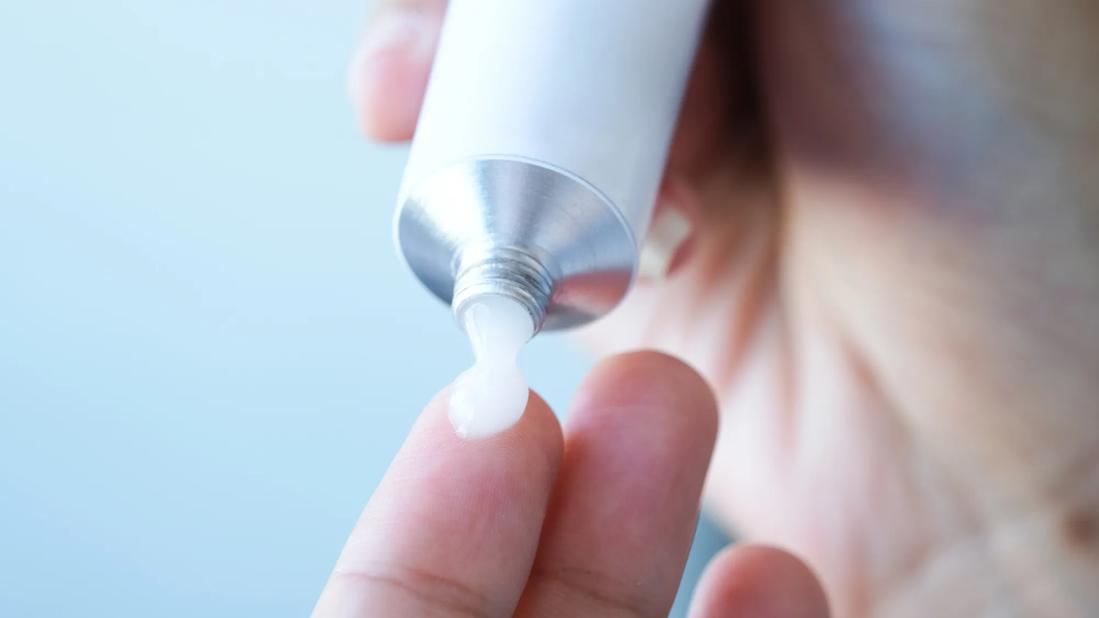These creams that you apply to your skin can actually help reduce localized pain, swelling and inflammation

Chronic pain and inflammation can really take a toll on your physical and mental health. Oral nonsteroidal anti-inflammatory drugs (NSAIDs) like ibuprofen (Motrin®, Advil®) can help reduce pain and inflammation. But they also carry certain risks for cardiovascular and kidney issues, stroke, bleeding and ulcers when you take them for extended periods of time.
Advertisement
Cleveland Clinic is a non-profit academic medical center. Advertising on our site helps support our mission. We do not endorse non-Cleveland Clinic products or services. Policy
“Your risk increases the longer you take NSAIDs as a treatment,” says physiatrist Meredith Konya, MD.
Fortunately, there are topical anti-inflammatory creams that offer the same amount of relief with significantly reduced risks. Dr. Konya explains how topical anti-inflammatory creams should be used and how they work.
When you apply topical anti-inflammatory creams directly to the area of your skin that’s causing you pain, they get absorbed by your tissues and joints and disrupt the feeling of pain and inflammation. Every topical anti-inflammatory works differently depending on their active ingredients.
Some of the most common active ingredients include:
Advertisement
A review of several clinical studies found that Voltaren gel is particularly effective. “In this review, 60% of patients got 50% relief with topical NSAIDs,” reports Dr. Konya. This was similar to the pain relief from oral NSAIDs and better than the placebo.
Unlike oral NSAIDs, which reduce inflammation throughout your entire body, topical NSAIDs work to relieve pinpoint, localized pain and swelling in your joints, muscles and tissues.
Although the amount of medication that enters your bloodstream is much lower than if you were to take an oral NSAID, you don’t need a lot of anti-inflammatory cream to experience relief. Topical anti-inflammatories reduce your body’s exposure by almost 90%. This minimizes your risk of experiencing harmful side effects.
Topical anti-inflammatories come in creams, gels and patches. They’re used to treat pain, stiffness and inflammation associated with a variety of conditions like:
Topical anti-inflammatories come in different strengths and doses, too. Make sure you read their instructions carefully and ask a healthcare provider if you have any questions about how to use them safely.
When used as needed or in the short term, these creams can provide immediate pain relief to the affected tissue or joint and the surrounding areas. Unless otherwise recommended by your healthcare provider, you shouldn’t use topical anti-inflammatory creams longer than a week or two. If your pain gets worse or persists beyond that timeframe, make an appointment with your healthcare provider.
Topical anti-inflammatory creams are usually very well-tolerated. If you have difficulty swallowing oral NSAIDs, topical NSAIDs are usually a safe alternative. But approximately 1 in 20 people experience a mild, temporary skin reaction in the form of a rash, redness, dryness or itchiness.
Topical anti-inflammatories shouldn’t be used after open heart surgery either. If you have known cardiovascular disease or kidney disease, talk to your healthcare provider before using these. You also shouldn’t use topical NSAIDs if you’ve taken them in the past and experienced allergic reactions, like:
“Topical NSAIDs are best for people with only a few painful joints,” clarifies Dr. Konya. If you apply the topical anti-inflammatory to several joints, you may exceed the recommended dosage and increase the risk of side effects. “People with arthritis in multiple joints are better off treated with an oral NSAID or acetaminophen (Tylenol®) unless there’s a medical reason they shouldn’t take them.”
Advertisement
Advertisement
Learn more about our editorial process.
Advertisement

The little blue pill might help with physical arousal, but there are better treatments for low libido in women

Your body’s response to rapid weight loss from the medication may cause shedding

This medication is best used on a limited basis

Authorized take-back programs, services and drop-off locations are the best, safest way to get rid of expired medicine

These illegal supplements have negative impacts for vital organs and may cause psychosis, heart attacks and more

Popular among teens, these inhalants give you a quick high, with serious harmful effects

‘Black box warnings’ on medications outline potential risks and important instructions

These similar versions of brand-name drugs are safe, effective and often less expensive

Wearing a scarf, adjusting your outdoor activities and following your asthma treatment plan can help limit breathing problems

Your diet in the weeks, days and hours ahead of your race can power you to the finish line

When someone guilt trips you, they’re using emotionally manipulative behavior to try to get you to act a certain way